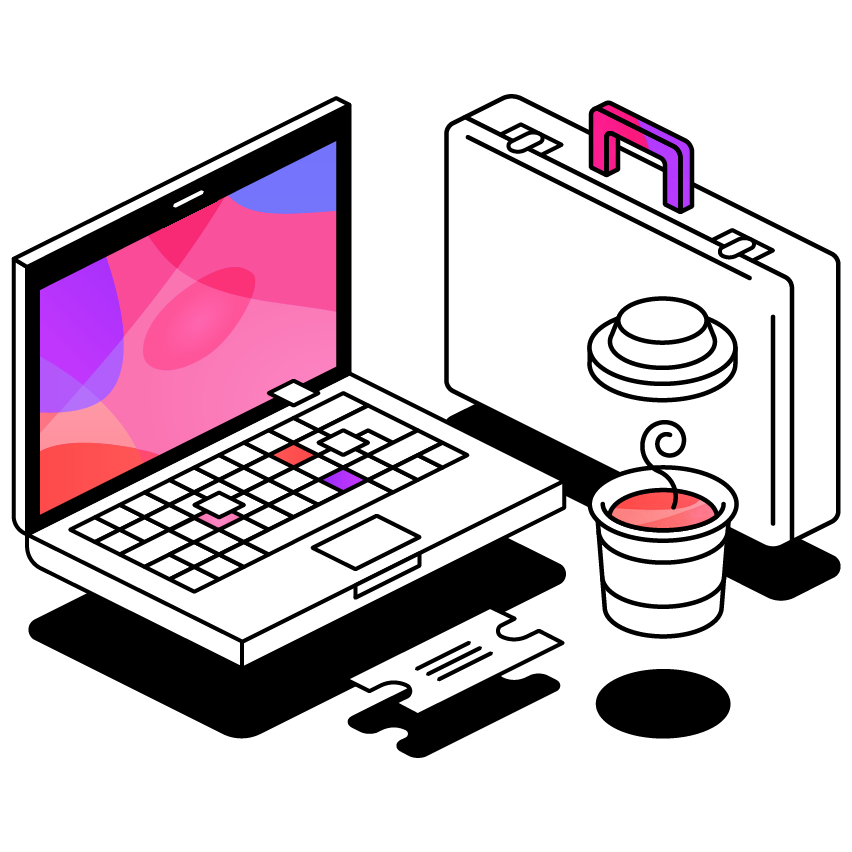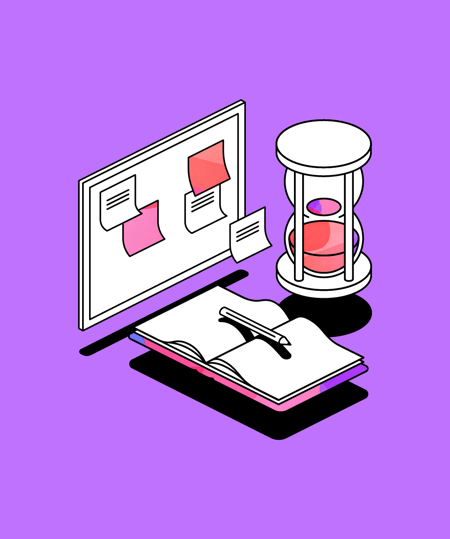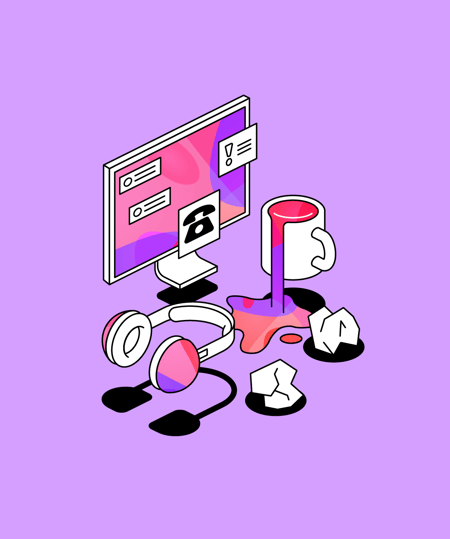Trusted AI resources for higher education professionals and students
For higher education professionals and students alike, it can be tricky to know where to turn for reliable information on using AI. Here we've collated a number of trusted resources that you can rely on for accurate insights.
 5 min read
5 min read
 Published: 18 Nov 2025
Published: 18 Nov 2025
 Jacob Goodwin
Jacob Goodwin


AI continues to dominate discourse, and infiltrate the ways and means in which higher education operates. As such, the need for trustworthy sources of information, to guide institutions and learners through this latest technological transition, becomes more important than ever.
In this guide, we’ve pulled on insights and expertise from those who have “been there and done it” to curate a list of trusted, high-quality resources. These will help you build foundational literacy, develop practical skills, create ethical policies, and stay current on the latest developments.
Resources for educators:
- Guiding frameworks: Policy, governance and associations
- Ethics, accessibility and societal impact
- Practical resources for educators and classrooms
- Latest news and analysis
Resources for students:
Guiding frameworks: Policy, governance and associations
These high-level resources are ideal for educators and administrators seeking to understand the national and international context of AI, develop campus policies, and connect with professional associations.
- EDUCAUSE - https://www.educause.edu/topics/artificial-intelligence
- What it is: The primary non-profit association for IT and technology leaders in higher education. Their resources are research-backed, data-driven, and focused on the future of the campus.
- Why it's included: This is the best source for "AI Landscape" studies, policy-writing guides, and webinars on the pedagogical and infrastructure challenges of AI in higher ed.
- U.S. Department of Education (Office of Educational Technology) - https://tech.ed.gov/ai/
- What it is: The primary federal body guiding educational technology in the U.S.
- Why it's included: Their "AI and the Future of Teaching and Learning" report sets the national tone for responsible AI use, equity, and innovation in education.
- NIST - AI Risk Management Framework (AI RMF) - https://www.nist.gov/itl/ai-risk-management-framework
- What it is: The U.S. National Institute of Standards and Technology's official framework for managing AI risks.
- Why it's included: While technical, this is a foundational US document. It's essential for educators in computer science, business, and policy who need to understand how AI governance is being standardized.
- OECD AI Capability Indicators - https://www.oecd.org/en/publications/introducing-the-oecd-ai-capability-indicators_be745f04-en.html
- What it is: A framework from the Organisation for Economic Co-operation and Development (OECD) that helps policymakers assess AI capabilities by comparing them to human abilities.
- Why it's included: This provides a crucial international perspective, offering a non-technical way to understand AI's progression and its potential impact on education and the workforce.
- AAC&U (Association of American Colleges and Universities) - https://www.aacu.org/trending-topics/ai
- What it is: The leading voice for liberal education in the U.S.
- Why it's included: Their focus is less on the tech and more on its impact on curriculum, ethics, and student learning, making it perfect for discussions in humanities and liberal arts courses.
Ethics, accessibility and societal impact
These resources are essential for all audiences and provide the critical, independent analysis needed to discuss AI's broader implications, including bias, labor, and accessibility.
- CAST (Center for Applied Special Technology) - https://www.cast.org/what-we-do/artificial-intelligence/
- What it is: A leading non-profit focused on Universal Design for Learning (UDL) and educational accessibility.
- Why it's included: This is the foremost resource for understanding how to use AI to increase accessibility and how to apply UDL principles to AI tools to ensure they are inclusive for all learners.
- Key report: UDL + AI: A Framework for Accessible & Equitable Learning
- AI Now Institute - https://ainowinstitute.org/
- What it is: A leading research institute focused on the social implications of AI.
- Why it's included: They produce rigorous, critical reports on AI in relation to power, labor, and justice, perfect for students and faculty in social sciences, humanities, and law.
- Data & Society - https://datasociety.net/
- What it is: A non-profit that produces independent research on the social and cultural impacts of data-centric technologies.
- Why it's included: Their work is ideal for sparking classroom discussions on AI, bias, and ethics.
- Mozilla Foundation - AI - https://foundation.mozilla.org/en/what-we-do/ai/
- What it is: The non-profit arm of the makers of Firefox, focused on an open and healthy internet.
- Why it's included: They are a trusted voice advocating for open-source, "trustworthy" AI, providing a valuable counter-perspective to models developed by closed, corporate labs.
Practical resources for educators and classrooms
This section is for educators looking for immediate, practical guidance on course design, syllabus policies, and pedagogical strategies.
- University of Michigan - Center for Research on Learning and Teaching (CRLT) - https://crlt.umich.edu/generative-ai-resources
- What it is: One of the most respected university teaching centers in the country.
- Why it's included: This site is a goldmine for sample syllabus policies, ideas for "AI-proof" or "AI-inclusive" assignment design, and guides on how to talk to students about AI.
- Harvard University - Teach with Generative AI - https://ai.teach.harvard.edu/
- What it is: A practical resource site for faculty, developed by Harvard's Vice Provost for Advances in Learning.
- Why it's included: It provides excellent, concise "Getting Started" guides, prompt design strategies, and critical perspectives on the limitations and biases of AI models.
- Online Learning Consortium (OLC) - https://onlinelearningconsortium.org/topics/artificial-intelligence/
- What it is: A collaborative community of leaders and instructional designers focused on quality digital learning.
- Why it's included: This is the best resource for educators in online or hybrid programs, offering playbooks and guides specifically for instructional designers.
Foundational AI learning for students
This section is perfect for students (and anyone new to AI) who want to build foundational skills, learn from the creators, and understand the rules of the road.
- OpenAI Academy - https://academy.openai.com/
- What it is: The official, free learning hub from the creators of ChatGPT.
- Why it's included: It offers courses for all skill levels and has specific learning tracks for higher education ("ChatGPT on Campus"), making it a perfect starting point for both students and faculty.
- Google AI for Everyone - https://ai.google/learn/
- What it is: Google's central hub for AI learning.
- Why it's included: It ranges from simple explainers ("What is generative AI?") to in-depth courses, making it an excellent, trusted resource for students looking to build foundational literacy.
- Microsoft Learn - AI Fundamentals - https://learn.microsoft.com/en-us/training/paths/get-started-ai/
- What it is: Microsoft's free, self-paced learning platform.
- Why it's included: This is invaluable for students who want to understand how AI is integrated into the business and productivity tools they will use in the workplace (e.g., Microsoft 360, Copilot).
- University of Washington - "GenAI for Students" - https://www.washington.edu/provost/generative-ai/genai-for-students/
- What it is: A university-vetted guide written explicitly for learners.
- Why it's included: It's a perfect, practical example of how to use AI for brainstorming and studying, and—most critically—how to cite it and avoid academic misconduct.
- AAC&U - Student Guide to Artificial Intelligence - https://www.aacu.org/publication/student-guide-to-artificial-intelligence
- What it is: A guide (PDF) from the Association of American Colleges and Universities.
- Why it's included: It is explicitly designed for students to help them navigate the academic and ethical challenges of AI in their courses.
- Professor Emily Nordmann - AI TutoR - https://psyteachr.github.io/AITutoR/
- What it is: A book that aims to teach students how to use AI to support their learning journey.
- Why it's included: Written by Professor Emily Nordmann, the resources orientates on the belief that students should be able to understand the principles of what they are learning and to critically evaluate writing on the topic, regardless of who or what wrote it, is non-negotiable. This book explains how.
Latest news and analysis
The field of AI changes daily. These resources are for everyone and will help you keep up with the latest news, trends, and debates.
- The Rundown - https://www.therundown.ai/
- What it is: A very popular daily newsletter that summarizes the biggest news in AI.
- Why it's included: It's the fastest way (a "5-minute read") for both busy students and faculty to stay on top of the latest breakthroughs, tools, and trends.
- MIT Technology Review - The Algorithm - https://www.technologyreview.com/newsletter/the-algorithm/
- What it is: A highly respected newsletter from a premier technology institution.
- Why it's included: It provides critical analysis, not just headlines. It helps you understand why the news matters, making it great for deeper understanding.
- Stanford University - Institute for Human-Centered AI (HAI) - https://hai.stanford.edu/news (for news) and https://hai.stanford.edu/education (for learning)
- What it is: One of the world's premier AI research institutes, focused on the human and ethical side of the technology.
- Why it's included: Their news page and educational resources provide a "big picture" on ethics and the future of AI in society, all backed by academic research.
- Inside Higher Ed (AI Section) - https://www.insidehighered.com/topics/artificial-intelligence
- What it is: A primary daily news source for higher education professionals.
- Why it's included: This is where you'll find up-to-the-minute reporting on how other universities are handling AI, including new policies and faculty debates.
- The Chronicle of Higher Education (AI Section) - https://www.chronicle.com/search?q=artificial+intelligence
- What it is: The leading trade publication for higher education.
- Why it's included: Go here for in-depth analysis, opinion pieces, and investigative reports on how AI is affecting admissions, research, and the classroom.
More from Supporting Students
View All
 2 min read
2 min read
How AI note taking tools can bridge learning gaps for STEM students with disabilities
Here, we explore how AI powered note taking tools act as a critical scaffold for STEM students with disabilities, helping with active conceptual engagement. This post breaks down how live transcripts and AI-generated retrieval practice. like quizzes, empower students to navigate technical subjects with full academic independence.

 3 min read
3 min read
How Genio Present can help students become more confident speakers
Students with anxiety or Specific Learning Differences can struggle to participate in oral assessments confidently and equitably. Learn how Genio Present helps students overcome public speaking anxiety, transforming nervousness into confidence and improving academic performance through innovative rehearsal techniques based on learning science.

 5 min read
5 min read
6 accessible learning apps for college students in 2026
Selecting tools that bridge accessibility and independence can be a transformative step in a student’s academic journey, fostering skills that last long after graduation. Here, we explore 2026’s top accessible learning apps, which empower students by automating unproductive barriers while preserving the deep, active engagement essential for true learning.





